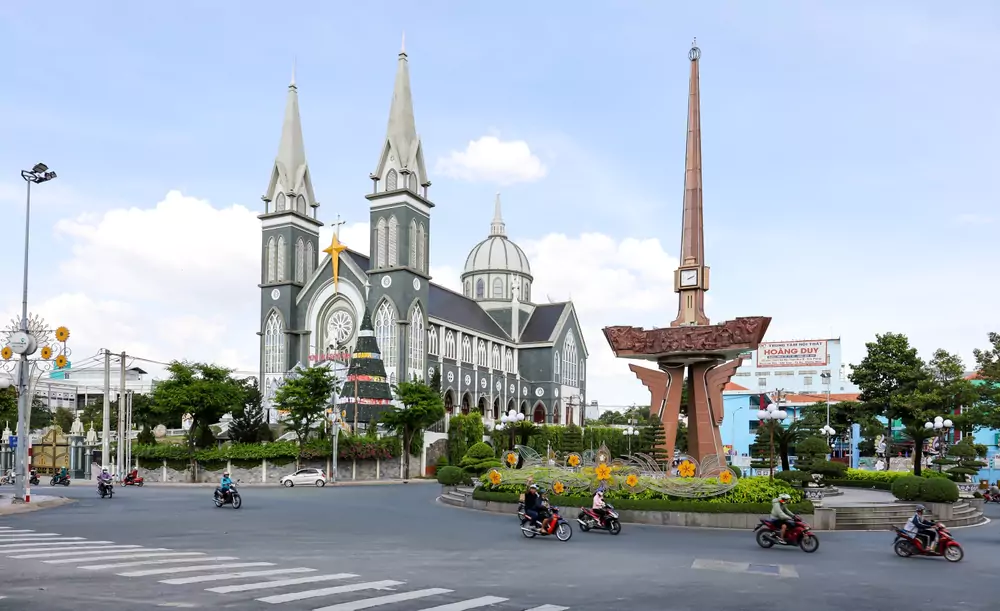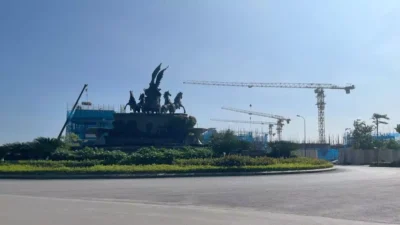Foreign investments in real estate pour into southern Vietnam, plus additional news

For PropertyGuru’s real estate news roundup, foreign investments continuously pour into the real estate market in southern localities of Vietnam. In other news, Chinese President Xi Jinping admitted the economy was facing new “problems” and vowed to resolve a long-running housing sector crisis. Lastly, major events could provide business to hotel operators in New Zealand and Australia.
Foreign capital influx permeates Southern Vietnam real estate market
Foreign investment are continuously poured into the real estate market in southern localities, resulting in the emergence of a series of new property projects in the past eight months.
According to data reported by the General Statistics Office (GSO) under the Ministry of Planning and Investment (MPI), the disbursement of foreign direct investment (FDI) continued to increase in the reviewed period.
VietnamPlus reports that the country attracted 2,247 new projects with a total registered capital of nearly USD12 billion, up 8.5 percent and 27 percent year-on-year, respectively. Of the figure, USD2.4 billion was invested in real estate projects, accounting for 20 percent of the total.
Troy Griffiths, Deputy Managing Director of Savills Vietnam, commented that the FDI influx has been quite strong in the last 3-4 years, adding that they have begun permeating the market, and FDI projects have begun to be implemented.
Notably, TT Capital Investment JSC, along with two partners from Japan—Cosmos Initia (a member of Daiwa House Group) and Koterasu—recently collaborated to develop affordable housing in Binh Duong and neighbouring provinces.
This joint venture announced an investment of about USD150 million over the next five years, aiming to deliver thousands of affordable apartments to the market each year. The venture has completed its capital contribution for a 2,000-apartment project in Di An City, which is scheduled to be inaugurated in the third quarter of this year.
China acknowledges ‘problems’ in economy, vows to ‘respond to the people’s concerns’
China’s top leaders, including President Xi Jinping, admitted Thursday, 26th September, that the economy was facing new “problems” and vowed to resolve a long-running housing sector crisis, state media said.
Beijing this week unveiled a raft of new measures aimed at boosting its ailing economy, which the leadership aims to grow by five percent in 2024 — an objective that analysts say is optimistic given the headwinds it is facing.
According to HKFP, the ruling Communist Party on Thursday convened a meeting of its top body, the Politburo, to “analyze and study the current economic situation”.
“Some new situations and problems have emerged in the current running of the economy,” the Xinhua news agency reported after the meeting, which was attended by Xi. “We must view the current economic situation comprehensively, objectively and calmly, face difficulties squarely, (and) strengthen confidence,” it added.
Stronger events proposition could boost hotel demand – CBRE New Zealand
As Auckland’s hotel industry grapples with a surge in room supply and low occupancy rates, new research from CBRE uses examples of events in Australian cities to demonstrate the value an improved forward schedule of major events could provide to hotel operators and many other CBD businesses.
CBRE’s September 2024 Impact of Events on Hotel Demand study analysed hotel performance data around several major events in New Zealand and Australia between 2022 and 2024.
The results show that increased local and central government investment into citywide events has immense potential benefit for hotels, hospitality businesses, retailers, transport operators and tourism providers.
Peter Hamilton, Director of Hotels and Leisure at CBRE New Zealand, said in The Hotel Conversation that major events are essential for stimulating Auckland’s economy at a time when growth in visitor numbers is waning as the global economic downturn bites.
“Our research shows that cities that leverage events effectively see a noticeable uptick in hotel occupancy and revenue. There are also significant wider economic benefits to the host city, as well as social benefits for residents who can enjoy a more vibrant city, a diverse mix of visitors and the general mood of excitement which major events bring.”
The Property Report editors wrote this article. For more information, email: [email protected].
Recommended
Meet the expert helping overseas investors crack Australia’s property market
Ivan Lam of property advisors Charter Keck Cramer helps clients navigate Australia’s complex real estate dynamics
6 spots to check out in Singapore’s Bukit list neighbourhood
The sought-after Singapore neighbourhood offers lifestyle amenities, green space, and new residential projects
Thailand’s real estate sector watches closely as the Shinawatras return to power
Time will tell if the return to power in Thailand of the Shinawatras will lift the country’s ailing real estate sector
China’s homebuying surge: Can new stimulus measures keep the market rally alive?
Stimulus measures have sparked a surge in homebuying activity around China, but many are sceptical the shift will endure








